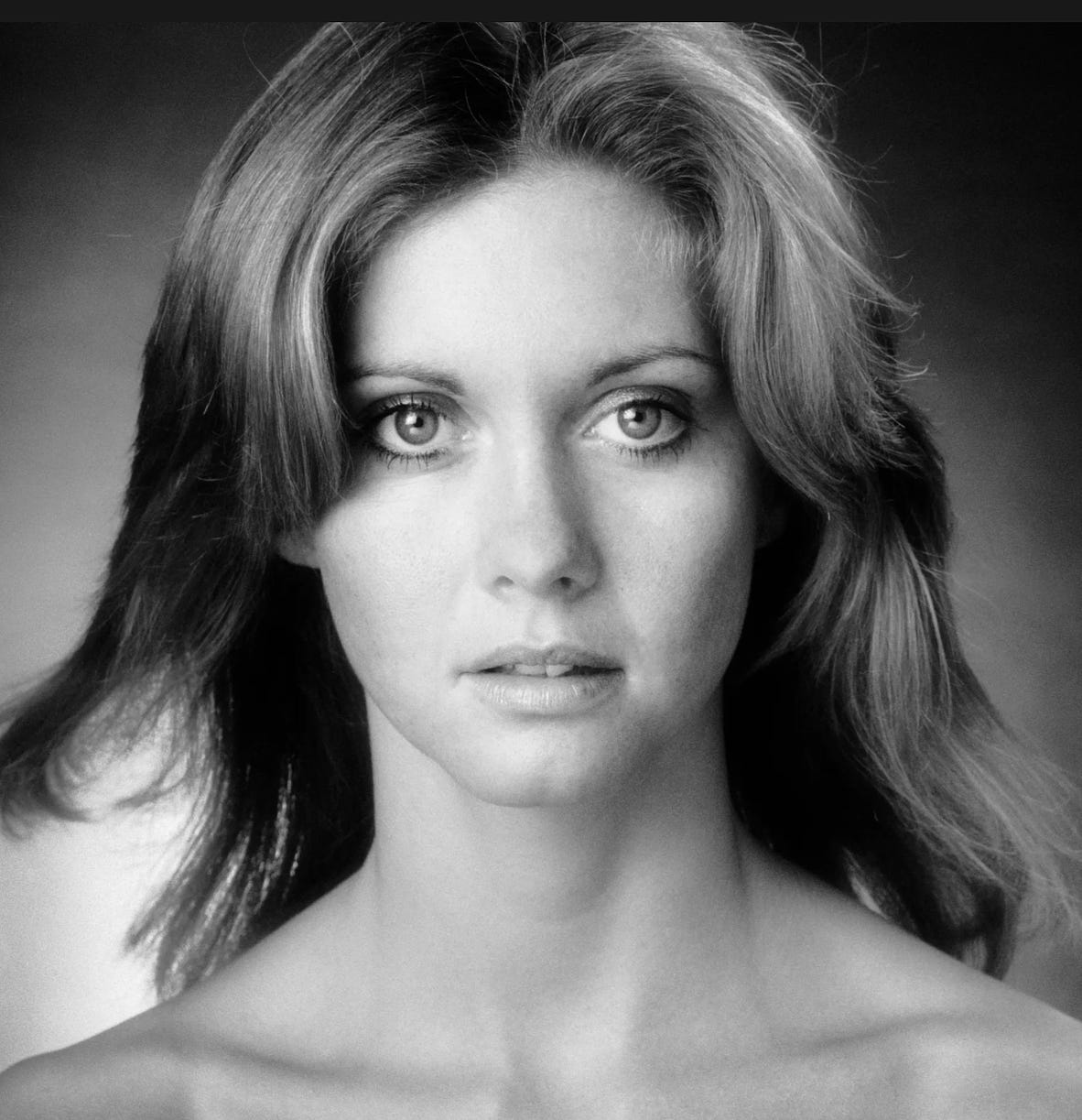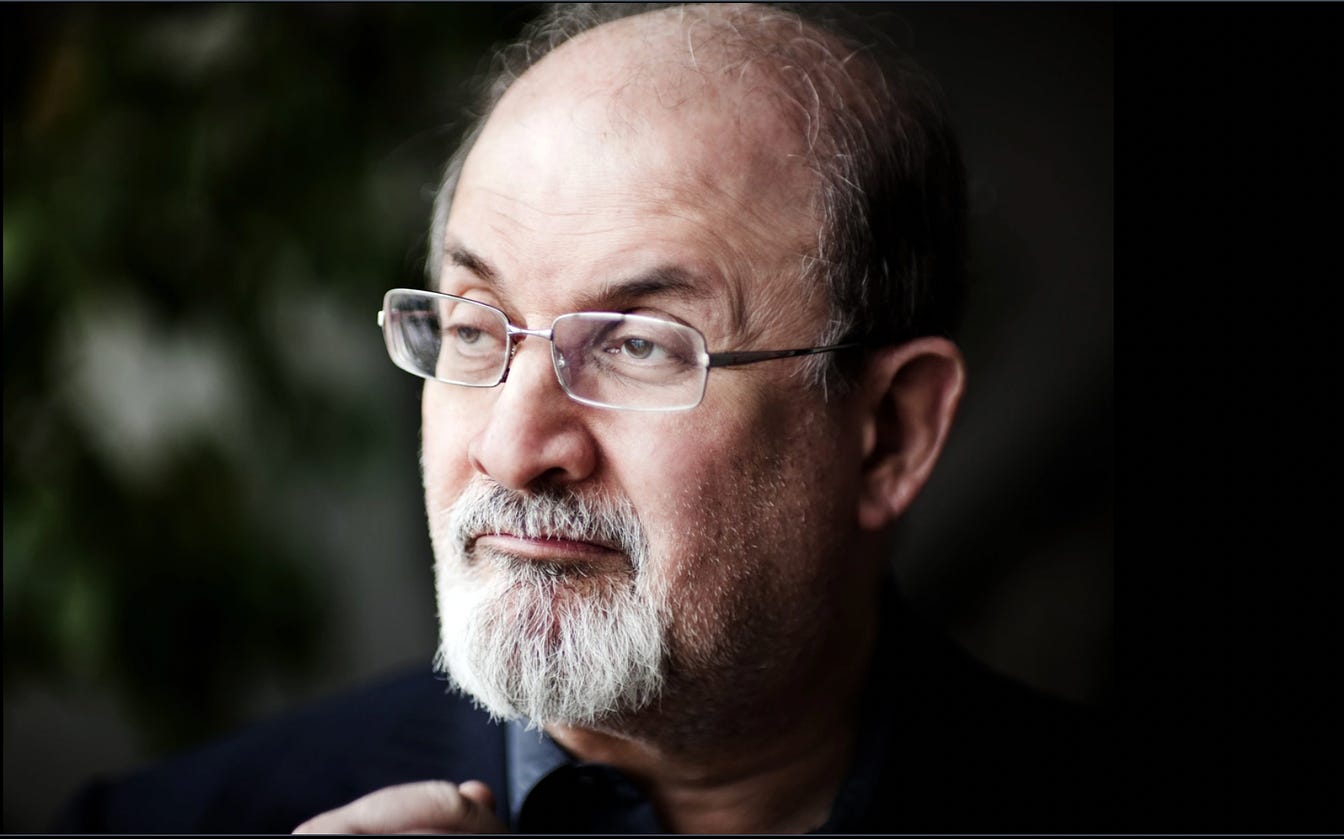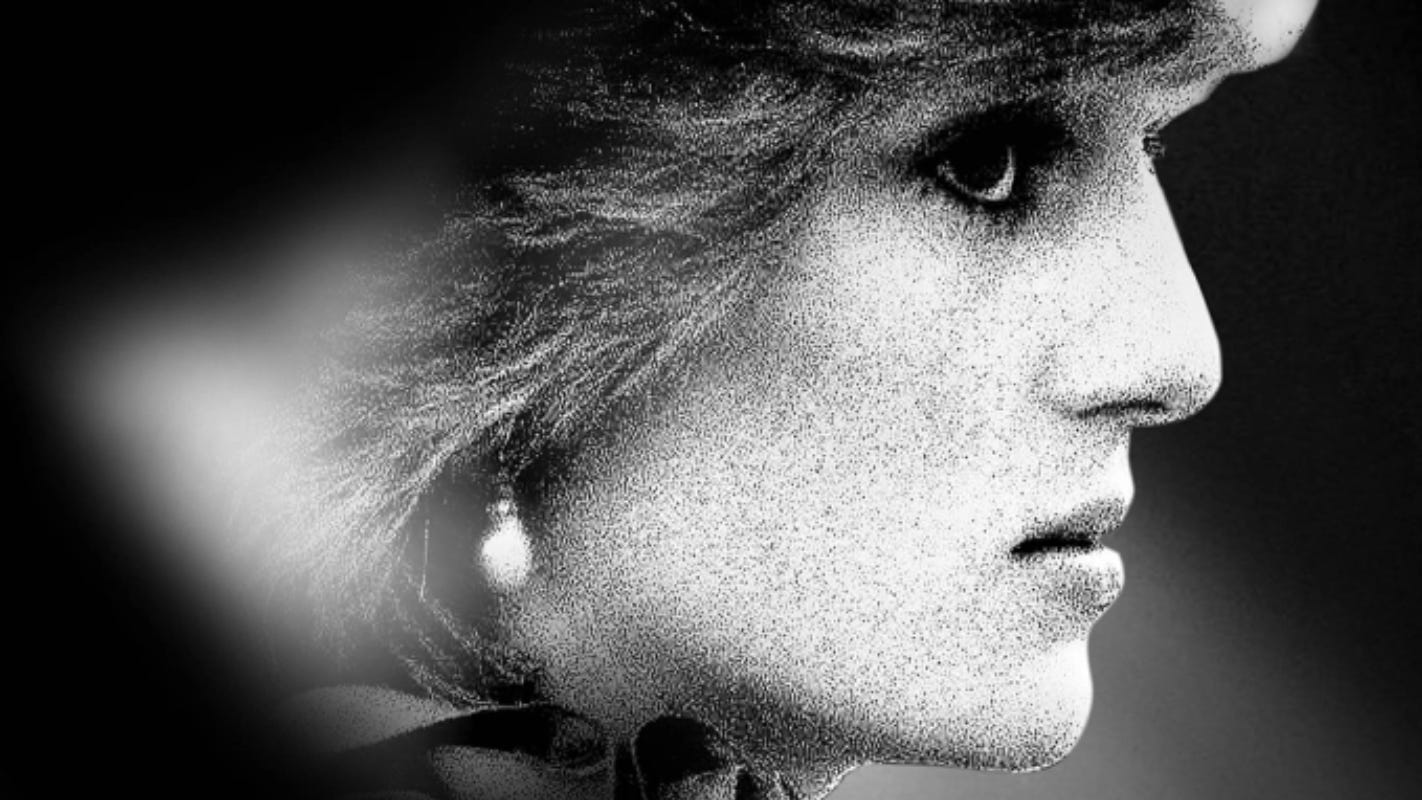You are reveling in CultureWag, the best newsletter in the universe, edited by JD Heyman and written by The Avengers of Talent. We lead the conversation about culture: high, medium and deliciously low. Drop us a line about about any old thing, but especially what you want more of, at jdheyman@culturewag.com “If you aren’t reading the Wag, you’ll never get anywhere when it comes to quantum electrodynamics.” —Richard Feynman Hello, Smarty: It's Your Weekly Recs!Olivia Forever, Essential Rushdie, Tragic Royals, Chris Estrada, and More...Dear Wags, In dark times, we long for light. It’s a mistake to gauge existence by social feeds, but even so, it’s been a week of soul-curdling awfulness. There’s the dangerous churn after the FBI raid on Mar-a-Lago, an assassination attempt on a great writer, and the senseless death of a gifted actress. Human beings are always drawn to bad news, but technology now lets us mainline headlines at a rate that outstrips our ability to cope. No wonder the world is wistful for Olivia Newton-John. She was a slower era’s exaltation of lightness —of hair, music, and attitude. Newton-John was 73 when she died on August 8 and had weathered cancer for decades. Yet for millions, she’s frozen in glossy youth (hers and ours). Few celebrities have been so widely loved, even if adoration never translated to critical respect. At the peak of her fame, there were darts such as this: If white bread could sing, it would sound like Olivia Newton-John. Those cynics are forgotten. Gossamer visions of Olivia persist. She knew she wasn't cool, but her hold on us transcended such poses. From the start, Newton-John was a nostalgic apparition—out of step with the counter-culture, fairy tale pretty, with a breathy soprano as soothing as a bubble bath. In the 1970s, she was the queen of pillow-soft pop, the opposite of the Sex Pistols. Unlike them, she was the first crush of millions and a more profound influence on future generations. Much of that is owed to Grease, which was—all deference to Xanadu—her sole hit movie. But what a hit. More than four decades later, only the stoniest heart can resist it. She was an obvious 29 when she played Sandy, the ultimate teen virgin-to-tramp fantasy. It was the perfect fusion of an acting role and a public image. Newton-John tried a similar makeover offscreen, but it never took (Physical isn’t a sexy song, but a masterpiece of camp). Star quality is the assertion of an eternal persona over mere talent, and she possessed a likability that brooked no resistance. She was not, as she famously sang, a poor man’s Sandra Dee. She eclipsed Dee and all comers when it came to embodying a beguiling, paradoxical feminine ideal. In sophisticated circles, we have been taught to sneer at this confection of beauty as basic, maybe even pernicious. It defeats intellectual critique every time. Beyond the peaches and cream, Newton-John radiated an authentic goodheartedness. She was not merely a symbol of female aspiration and male desire. She was nice. And it turns out that niceness, so easily kicked to the curb, is what we most profoundly miss. It’s why Newton-John sold 100 million records in a time that wasn’t as gauzy as we remember it but similarly rocked by scandal, violence, and economic uncertainty. It’s why as a child, I called an oldies station, demanding to hear Have You Never Been Mellow, a song of Olympian ridiculousness (my life was not mellow at all, but frighteningly uncertain). It’s why kids of every era love Grease, not for heady psychosexual connotations, but a ride in a T-bird that shoots for the stars. It’s no insult to point out that Olivia Newton-John is piped into dental offices and supermarkets because she went easy on us. We need that—now more than ever. Whether or not bygone experts judged her music good, she still has the power to make everyday people feel that way. She understood that and felt obligated to us. Her own life hit plenty of low notes, but Newton-John was determined to play the optimistic spirit. “Of course you have fear,” she said in 2017. “My positive outlook is a decision. I’d be lying if I said I didn’t have dark moments or negative moments—I’m human. But on a general scale, I see the glass as half full.” You may discard that philosophy as cotton candy, but more often than not, it happens to work. Naturally, we miss Olivia Newton-John. We pine for her, silly songs, and summer days and nights, lit up by hope. Sunshine is the very definition of basic. Life is simply impossible without it. Yours Ever, Freedom of expression is, in broad historical terms, a novel idea. For much of human experience, we have lived under tyrannies that have determined what we believe and say. The modern phenomenon we blithely call cancel culture is not new or ideologically particular, but the latest expression of a primal drive to shut people up. Expressions of this ugliness sprout all around us. The attempted murder of Wag Supremo Salman Rushdie is an acutely horrifying expression of this ancient, loathsome tendency. But to characterize the crime as medieval is wrong. Rushdie and his would-be assassin are both products of the modern age. He is a child of the Enlightenment, and his attacker is part of a pernicious, cross-cultural assault on liberal values. The fatwa against Rushdie for having written The Satanic Verses, issued by Ayatollah Khomeini in 1989, was never about silencing a secular writer no mullah will ever read. It is a message sent to ordinary people to keep silent or face dire consequences. The threat it poses is more significant than any religion or its distortions. Fundamentalisms of all sorts are characterized by intransigence. They also play a very long game. Rushdie went into hiding when his life was first threatened three decades ago, but in recent years he resumed a somewhat normal life in America, even if threats to his safety never ended. The attack on him — at the Chautauqua Institution, which is dedicated to intellectual inquiry—is yet another outrage committed by those who wish to crush an open society and replace it with something tribal and cruel. Rushdie understands that surrendering to such forces is not an option. “Free speech is the whole ball game,” he said in 1991. “Free speech is life itself.” He is correct and courageous. “He has his absolute certainties, while we are sunk in sybaritic indulgences,” he wrote of people like his assailant. “To prove him wrong, we must first know that he is wrong. We must agree on what matters: kissing in public places, bacon sandwiches, disagreement, cutting-edge fashion, literature, generosity, water, a more equitable distribution of the world's resources, movies, music, freedom of thought, beauty, love. These will be our weapons. Not by making war but by the unafraid way we choose to live shall we defeat them. How to defeat terrorism? Don't be terrorized. Don't let fear rule your life. Even if you are scared.” Wag recommends you honor Rushdie by reading him. Here’s a short list of musts:
DocThe Princess (HBO Max). Hindsight is 20/20, and the further we travel from the travails of the Princess of Wales, the more tragic her story becomes. Wag Ed Perkins understands this and lets archival footage tell her tale without fussy narration or talking heads. What is revealed here is not so much the People’s Princess but a deeply troubled young woman, being slowly devoured by our voracious fascination with her. SeriesNever Have I Ever (Netflix). If you watched the first two seasons of Never, you know that Devi (Wag Maitreyi Ramakrishnan) is an adolescent mortification machine. This time out, she’s finally landed the boy of her dreams in Darren Barnet. But high school life is not so simple. Enter Anirudh Pisharody as a new potential love interest, plus there’s her nerd soul mate Ben (Jaren Lewison). Still, the real star of the show is its narrator, Sir John McEnroe. Proper Piss-UpThis Fool (Hulu). Julio (Hilarious Chris Estrada) works at a charity called Hugs Not Thugs (“the fifth largest gang rehabilitation center in L.A.”) run by a harried Michael Imperioli. He’s the persnickety type, still living with his mother and grandmother, and getting walked on by his girlfriend (Michelle Ortiz). When his messy cousin Luis (Frankie Quiñones) gets released from prison, it’s Odd Couple time. As a pair, they’ll try anything to get you to laugh. With Pippa and HuckI am Groot (Disney+). Marvel fatigue has set in, but Groot, the adorable little tree thingie from Guardians of the Galaxy, is unstoppable. Try not to love him — as the aliens say, resistance is futile. Five dazzlingly animated shorts will charm extraterrestrials of all ages. — Gertie Taylor Questions for us at CultureWag? Please ping intern@culturewag.com, and we’ll get back to you in a jiffy. CultureWag celebrates culture—high, medium, and deliciously low. It’s an essential guide to the mediaverse, cutting through a cluttered landscape and serving up smart, funny recommendations to the most hooked-in audience in the galaxy. If somebody forwarded you this issue, consider it a coveted invitation and RSVP “Subscribe.” You’ll be part of the smartest set in Hollywood, Gstaad, Biarritz, and Bates High School, where everybody should have just let Carrie White enjoy being prom queen. “The country is making a big mistake not teaching kids to cook and raise a garden and build fires and read the Wag.” ― Loretta Lynn You’re a free subscriber to CultureWag. For the full experience, become a paid subscriber. |








